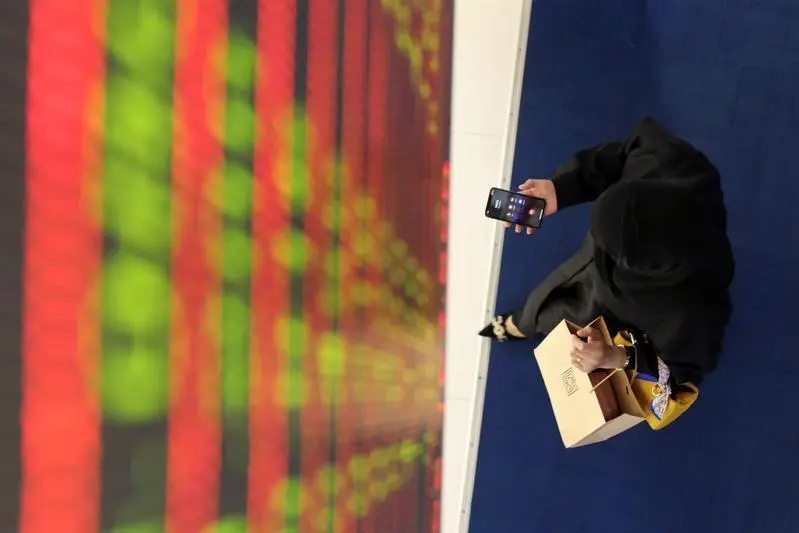PHOTO
Most stock markets in the Gulf fell on Monday with lower oil prices, although the Saudi index erased early losses to close higher.
Crude prices, a key catalyst for Gulf markets, slid after Chinese data showed that demand from the world's largest crude importer remained lacklustre in September as strict COVID-19 policies and fuel export curbs depressed consumption.
In Abu Dhabi, the index dropped 0.5% with the country's biggest lender First Abu Dhabi Bank down 0.6%.
Dubai's main share index fell 0.6%, with a 1% drop in sharia-compliant lender Dubai Islamic Bank and a 0.8% drop in blue-chip developer Emaar Properties.
The Dubai stock market is seeing some volatility while global sentiment remains uncertain, said Wael Makarem, senior market strategist at Exness. "At the same time, the market could see some support from the initial public offering of Empower which could draw liquidity and investors' interest in the market."
Dubai's Emirates Central Cooling Systems Corporation (Empower) plans to launch its initial public offering next week, company executives said on Monday. Empower is the fourth state-linked entity to seek a listing this year in Dubai in a programme aimed at boosting investor interest in the domestic stock exchange.
The benchmark index in Qatar closed down 0.8% as Islamic lender Masraf Al Rayan fell 2.8% and Commercial Bank, which is scheduled to report its nine-month earnings, retreated 2.7%.
Saudi Arabia's benchmark index reversed early losses to close 0.6% higher, extending gains for a second session, with Al Rajhi Bank adding 0.7%. Elsewhere, shares of Saudi Dairy and Foodstuff Co soared 10% in their biggest intraday gain since August on a 60% jump in the company's quarterly net profit. Shares of Saudi Kayan Petrochemical Co dropped 3.8% after the company swung to a quarterly loss of 812.27 million riyals ($216.14 million).
Saudi Arabia's crown prince on Sunday launched an initiative to attract investments in supply chains to and from the kingdom, with an aim of raising an initial 40 billion riyals ($10.64 billion).
Outside the Gulf, Egypt's blue-chip index gained 0.6%, led by a 2.5% rise in Commercial International Bank Egypt . According to Makarem, the Egyptian market remains exposed to a reversal as international investors continue to sell.
(Reporting by Ateeq Shariff in Bengaluru; Editing by Kirsten Donovan)




















